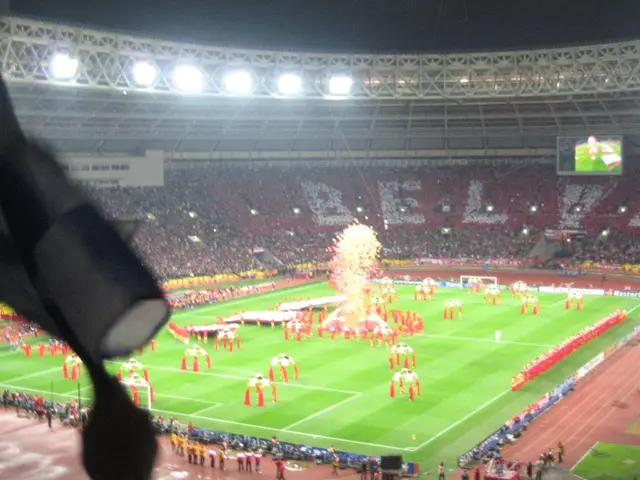Bid from Bally's casino for NYC approval seems imminent, potentially facing a challenge against council members' allegiances.
In a surprising turn of events, Mayor Eric Adams has used his veto power to override the New York City Council's rejection of Bally's casino proposal for the Ferry Point site in the Bronx. The initial vote, which rejected the land use change required for the casino, was seen as an exercise of independent legislative action by the Council. However, Adams' veto asserts executive influence, requiring the Council to defer or overcome that veto through a supermajority vote.
The controversy surrounding the proposal centers on allegations of potential conflict of interest, as the Trump Organization—former owners of part of the proposed casino site—stands to gain a $115 million payout if Bally’s gets the green light. Mayor Adams has emphasised his desire for fair competition among bids, stating that his veto was not an endorsement or an unfair advantage for Bally's.
Despite the political hurdles, Bally’s held its first public hearings in the Bronx, where most local residents reportedly voiced support for the $4 billion casino-hotel complex proposal. This level of community acceptance suggests that the proposal may have found favour with the public, despite initial opposition from the Council.
The veto power imposes a significant deference test on the Council’s decision-making, requiring a two-thirds majority to overturn the Mayor’s position. This dynamic illustrates a check-and-balance interplay where member deference may be challenged by executive power. However, it remains unclear whether the Council has the votes to pass the override of the veto, and it would need to schedule a meeting to do so before a tight deadline next week.
Critics of Mayor Adams have pointed to his friendly relationship with President Trump and two people in his inner circle who have worked for Bally's. Council Member Bob Holden, who has expressed opposition to the casino proposal, argued that the Council's decision goes against the tradition of member deference, a practice that allows council members to unilaterally decide the fate of land use approvals in their own districts.
City Hall has insisted that the Mayor's earlier intervention on Bally's had nothing to do with his relationship to Trump. Mayor Adams stated that he wanted to give the proposal the same shot as other bidders to compete for a casino license. Other members of the Bronx delegation in the City Council have argued that the Bally's casino proposal should have a shot, as it could bring economic benefits to the area.
The council's decision not to hold a vote to override Mayor Eric Adams' veto of the council's earlier rejection of Bally's land use application for the casino was determined in a private conference of Democratic council members. The council's spokesperson, Benjamin Fang-Estrada, stated that if the Mayor wants to do the casino applicant's work for them and carry their water with all his conflicts of interest, that's his decision, and the state can investigate.
As the saga unfolds, Bally's continues to compete for one of three downstate casino licenses, with the final license decision expected by the New York State Gaming Commission before the end of 2025. The ultimate decision to grant a casino license lies with the state Gaming Facility Location Board.
[1] Source: The New York Times [2] Source: Crain's New York Business [3] Source: Bronx Times Reporter [4] Source: New York Daily News [5] Source: Gotham Gazette
- Despite ongoing debates about potential conflicts of interest and a controversial relationship with President Trump, Mayor Eric Adams' veto of the New York City Council's rejection of Bally's casino proposal for the Ferry Point site in the Bronx has started a dynamic check-and-balance interplay, challenging the traditional practice of member deference in decision-making.
- The defeat of the Council's supermajority vote to override the Mayor's veto, determined in private conference, has raised concerns about executive influence in policy-and-legislation issues, such as casino-and-gambling, and gambling games like poker.
- As the saga progresses, media outlets like The New York Times, Crain's New York Business, Bronx Times Reporter, New York Daily News, and Gotham Gazette have closely followed the general news of Bally's efforts to secure a casino license, which could significantly impact housing and the local economy in the Bronx.




